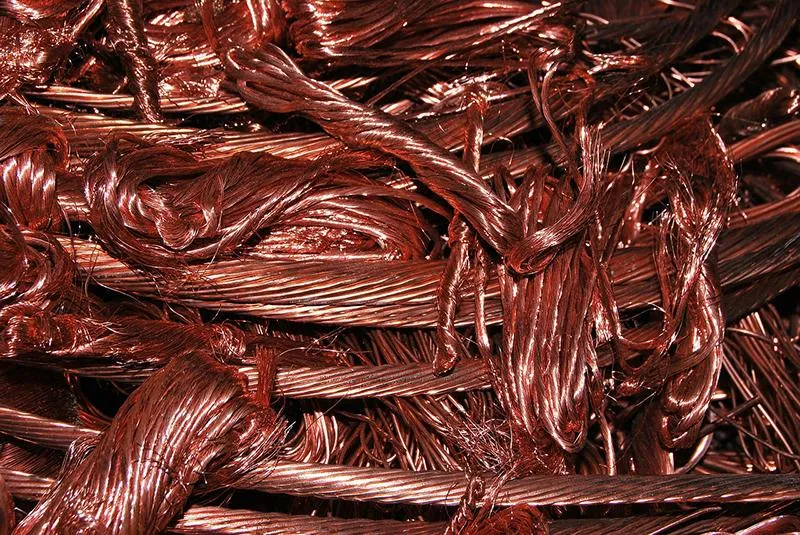Verizon refuses to fix customer lines, forces consumers to take fiber or lose service

A complaint filed today at the Federal Communications Commission (FCC) charges Verizon with systematically deceiving customers, refusing to fix the phone lines of customers on its traditional copper network, and forcing them to switch to the company’s fiber network or lose all service. This is the first complaint alleging violation of the agency’s copper retirement rules, which took effect on March 24, 2016.
This practice is driven by an internal Verizon policy called “Fiber Is the Only Fix,” according to the complaint, which was filed by public-interest groups, including Common Cause and Public Knowledge, as well as the Communications Workers of America (CWA).
The complaint charges that Fiber Is the Only Fix is an institutionalized policy designed to deceive customers and constitutes “unjust and unreasonable practices” that violate federal law. The complaint also charges that Verizon has been giving retail customers as little as 15-days notice before ending their copper service, when FCC rules say they must be given at least 90 days notice. The complaint covers seven states -- VA, MD, PA, NY, DE, RI and MA.
“Instead of expanding public access to affordable communications, Verizon is systematically cutting off many customers from even the most basic telecom services,” said Meredith Rose, staff attorney at Public Knowledge, a nonprofit that promotes freedom of expression and an open Internet. “At a time of technology transitions, it’s more important than ever that people are fully informed with adequate time to prepare for any changes, but Verizon’s deceptive practice cuts off service with no advance notice, and that’s a threat to public safety and an unacceptable violation of FCC regulations.”
When a “Fiber is the Only Fix” customer calls in with trouble on their line -- such as no dial tone or noise on the line -- Verizon creates a “ghost” service order to transfer the customer to fiber service. The service order is called a “ghost” service order because the customer is not told about it.
Verizon then dispatches a technician on the ghost service order. The technician is instructed not to discuss the purpose of the dispatch prior to arriving at the customer’s location. At that time, the technician informs the customer that Verizon no longer repairs copper lines, and the customer must upgrade to fiber. If the customer does not want to upgrade to fiber, Verizon will not allow the technician to repair the copper line and advises the customer that Verizon will disconnect the line.
"Access to universal and affordable telecommunications is essential for democratic participation in our society, said Michael Copps, former FCC Commissioner and Common Cause Special Adviser. "Copper still has plenty to offer, so an orderly transition to new platforms, with adequate notice and respect for the rules is essential. We expect the FCC to take prompt action to protect consumer rights and keep all Americans connected."
“By instituting this reprehensible policy to deceive customers, Verizon executives proved that only profits -- not customer service -- motivates this company,” said Chris Shelton, president of the Communications Workers of America. “Verizon executives violated the law and are forcing our members to join in a program they strongly object to. With this complaint filed today at the FCC, we are standing up for our customers, just as we are standing up for them every day on picket lines from Massachusetts to Virginia.”
“CWA fully supports the conversion from copper to fiber, but we believe that consumers should be able to make this choice without pressure, threats and deception from Verizon,” Shelton added.
The FCC’s Copper Retirement rules require 90-days advance notice to retail customers to “ease the transition” from copper-to-fiber. The FCC specifically prohibited any exceptions when a carrier allows its copper network to deteriorate, effectively disabling service.
Verizon has slashed its workforce nearly 40 percent over the last decade. Workers say the company’s aggressive pursuit of profit -- it made $39 billion in profit over the last three years -- has come at the expense of both worker safety and quality service.
Service quality has deteriorated to the point that New York State’s Public Service Commission has convened a formal hearing to investigate problems across the Empire State. In the last few weeks, regulators in Pennsylvania and New Jersey have launched similar inquiries into Verizon’s operations.
Fiber Is the Only Fix Informal Complaint to the FCC (CWA, Common Cause, Public Knowledge, US Action, May 3, 2016)
Union Complains to F.C.C. That Verizon Is Pressuring Phone Customers (New York Times, May 3, 2016)
CWA and IBEW set to go on strike at Verizon (Speed Matters, Apr. 11, 2016)
Verizon strike gains strength, support from presidential candidates and elected officials (Speed Matters, Apr. 19, 2016)
NY regulators launch investigation into Verizon’s copper network (Speed Matters, Mar. 18, 2016)
PA Public Utility Commission announces hearings into Verizon’s systemic neglect (Speed Matters, Feb. 23, 2016)
NJ Board of Public Utilities to investigate towns’ complaints against Verizon (Speed Matters, Feb. 26, 2016)
CWA members oppose AT&T’s attempts to stop serving rural and low-income communities in California
CWA urges FCC to deny industry attempts to loosen pole attachment standards
CWA District 6 reaches agreement with AT&T Mobility



